Faith-Based Recovery Programs: Nurturing Healing for Mind, Body, and Spirit
Are you struggling to find hope in recovery when traditional methods fall short? This post explains how faith-based recovery programs help rebuild strength in mind, body, and spirit. It outlines the influence of spirituality on healing and the benefits of integrating Christian drug rehab into treatment. Readers will learn how these programs address recovery challenges and provide holistic support. Engaging with this content offers clear steps to navigate the path toward lasting healing.

Faith-Based Recovery Programs: Nurturing Healing for Mind, Body, and Spirit
Are you struggling to find hope in recovery when traditional methods fall short? This post explains how faith-based recovery programs help rebuild strength in mind, body, and spirit. It outlines the influence of spirituality on healing and the benefits of integrating Christian drug rehab into treatment. Readers will learn how these programs address recovery challenges and provide holistic support. Engaging with this content offers clear steps to navigate the path toward lasting healing.
Key Takeaways
- faith-based recovery integrates spiritual practices with therapeutic approaches for holistic healing
- programs combine counseling with guided prayer and community support for comprehensive recovery
- participants receive practical guidance to align mind, body, and spirit during treatment
- structured support systems encourage self-reflection and personal growth through regular group sessions
- recovery programs tailor treatment plans based on both spiritual principles and practical insights
Understanding Faith-Based Recovery Programs and Their Impact on Healing

This section explains faith-based recovery programs, emphasizing the role of belief and the religious experience in treatment. It highlights why these programs differ from traditional options by integrating worship and reason into therapeutic practices such as mindfulness therapy, and references teen challenge as a model for specialized care. The discussion promises practical insights and clear value for those seeking a holistic path to healing.
Definition and Importance of Faith-Based Recovery
Faith-based recovery offers a treatment method that combines spiritual elements and practical approaches to foster healing. Programs guided by concepts supported by the national institutes of health encourage participants to reconnect with their soul and align with a higher power, using principles drawn from religion to foster a sense of peace.
This model of recovery focuses on addressing the mind, body, and spirit through spiritual engagement and structured support systems:
- Incorporation of spiritual practices that integrate peaceful reflection and prayer
- Emphasis on personal connection with a higher power to restore and nurture the soul
- Utilization of community resources and structured services that support recovery
How Faith-Based Programs Differ From Traditional Recovery Options
Faith-based programs stand apart from traditional recovery options by integrating spiritual care with therapeutic practices. These methods, seen in settings like christian treatment centers for depression and specialized rehab applications, offer a holistic approach to healing that addresses the mind, body, and spirit in a unified manner.
Health care practices within these programs combine practical treatment with spiritual art and guidance to support lifelong recovery, providing insights that traditional methods may not offer:
The Role of Spirituality in Recovery

Spiritual practices that enhance recovery, such as yoga sessions and meditation, support healing by easing pain and fostering salvation. Christian based recovery programs and 501 initiatives guide individuals toward connecting with a higher power, laying the groundwork for comprehensive recovery and improved well-being.
Spiritual Practices That Enhance Recovery
Faith-based recovery programs often incorporate daily practices that encourage gratitude as a foundational element, reinforcing optimism throughout the healing journey. Many treatment centers include structured group sessions that integrate prayer and reflective journaling, similar to practices observed in christian rehab alcohol settings, which foster both community connection and individual growth.
Practitioners in faith-based programs acknowledge the wisdom found across spiritual traditions, including judaism, to create a well-rounded recovery experience. These initiatives align with professional support networks, such as connections made on linkedin, to ensure participants receive practical guidance and foster long-term resilience.
Connecting With a Higher Power During Healing
The program fosters understanding and forgiveness by guiding participants to connect with a higher power, which acts as a compass during their recovery journey. Clients in kansas-centered initiatives experience a supportive environment that strengthens resilience and reinforces the essential spiritual elements of the healing process.
The program emphasizes the significance of connecting with a higher power, offering clear steps for achieving understanding and forgiveness. This approach delivers practical insights that help individuals navigate their recovery with a reliable compass, ensuring a balanced focus on healing for the mind, body, and spirit.
Advantages of Christian Drug Rehab for Lasting Recovery

The program offers comprehensive support for mind, body, and spirit through a balanced concept that integrates faith into treatment plans. It emphasizes the natural beauty of recovery, drawing insights from southern california practices, and benefits from the structured approach of a faith recovery center. This section outlines practical strategies for lasting healing and renewed purpose.
Comprehensive Support for Mind, Body, and Spirit
The program emphasizes comprehensive support by focusing on both spiritual and physical healing. It draws on bible teachings and faith based recovery programs to foster hope and shift the perception of recovery from a challenging battle to a journey of renewal, particularly for those recovering from opioid misuse.
Participants receive tailored support that nurtures the mind, body, and spirit through structured faith based recovery programs. This approach integrates practical treatments with spiritual guidance, using the bible as a source of wisdom to instill hope and promote a positive perception of recovery among individuals facing opioid challenges.
Integrating Faith Into Treatment Plans
The program integrates structured spiritual guidance into treatment plans by involving experienced pastors who contribute practical insights on managing relapse and promoting sustained recovery. Drawing on principles of spirituality and supportive practices popular in California, the initiative fosters an environment where faith intertwines with therapeutic strategies to nurture healing on all levels.
Clients benefit from a methodical approach that combines counseling with faith-centered practices, ensuring that each step in the recovery process is reinforced by spiritual principles and compassionate leadership. The model leverages the expertise of community pastors and reputable recovery services to provide a supportive framework that minimizes relapse and empowers long-term healing.
Key Components of Successful Faith-Based Recovery Programs

Successful faith-based recovery programs focus on personal growth through faith and community and solid counseling and group support systems. They address sobriety issues with practical insights, drawing on examples from the salvation army in Missouri. Real experiences and shared insights on twitter ground the discussion in reality, providing clear guidance for individuals seeking lasting recovery.
Personal Growth Through Faith and Community
Faith-based recovery programs support personal growth by fostering a sense of community that promotes prayer and practical strategies to overcome feelings of shame. The integration of christian based rehabs in treatment plans encourages consciousness and empathy, allowing individuals to build resilience through shared experiences:
- Structured prayer sessions for self-reflection
- Group support meetings to foster empathy
- Activities aimed at addressing and reducing shame
This approach nurtures personal growth by emphasizing tangible steps to achieve recovery, providing a space for individuals to learn from practical examples and expert guidance. The methodology improves awareness and enhances overall consciousness, supporting a balanced healing process.
Counseling and Group Support Systems
The program provides structured counseling that directly addresses addictive behavior as well as challenges related to drugs. Expert therapists guide participants through techniques such as focused breathing exercises to improve mental clarity and align with a supportive universe.
Group support systems create a safe environment for individuals to share practical experiences and personal insights, drawing inspiration from models like the oxford treatment center. Such sessions offer actionable strategies to overcome addictive behavior while maintaining a commitment to healing and personal growth.
Testimonies of Healing in Faith-Based Recovery

Inspiring stories demonstrate personal transformation and bolster confidence through community support in overcoming addiction. Detailed information, including examples from the catholic church and recovery experiences involving benzodiazepine misuse in florida, showcase how faith-based recovery nurtures healing for mind, body, and spirit. These testimonies set the stage for practical insights and inspirational guidance.
Inspiring Stories of Transformation
The program highlights inspiring stories of transformation where a patient using outpatient services revitalized their mind and discovered extraordinary creativity through deep faith. Each narrative reflects actionable insights and practical examples, ensuring that individuals facing similar challenges receive clear guidance toward lasting healing.
One remarkable account features a patient whose journey evolved through consistent engagement with faith-based support, blending outpatient care with practices that foster creativity and mental clarity. These experiences serve as practical examples for individuals seeking to restore balance and well-being in their lives through holistic healing.
Community Support in Overcoming Addiction
Community support systems in faith-based recovery programs create an environment where individuals receive practical guidance on coping with challenges, ensuring access to supportive medicine and structured curriculum designed to aid healing. This integrated approach helps clients navigate issues with health insurance and payment options while fostering a compassionate network that addresses both emotional and physical needs.
The program stresses the need for a robust support network as a cornerstone of recovery, where group sessions offer actionable advice and techniques for managing everyday challenges. Practitioners emphasize that consistent community engagement, coupled with personalized assistance in managing medicine, coping strategies, curriculum details, health insurance, and payment concerns, plays a crucial role in nurturing overall wellness.
Resources and Support for Individuals Seeking Faith-Based Recovery

This section guides individuals in finding the right program for their spiritual journey, whether through consultation with a physician or involvement in christian drug recovery networks. It outlines both online and in-person resources for ongoing support that address mental challenges, nurture individual feelings, and foster a strong community network.
Finding the Right Program for Your Spiritual Journey
Individuals seeking to advance their spiritual journey can begin by carefully reviewing rehab centers that prioritize inner peace and effective therapy practices. Experts recommend reviewing each program’s marketing materials to verify its services. This ensures they align with personal values and foster a supportive recovery environment.
Providers stress the significance of consent in treatment approaches, ensuring that every individual receives personalized guidance during their healing process. The journey toward recovery benefits from a professional framework that promotes effective therapy practices. These practices foster a strong connection with faith and support a well-balanced life.
Online and In-Person Resources for Ongoing Support
The program offers both online and in-person resources that provide reliable spiritual direction and practical advice for individuals experiencing challenges after an injury or seeking guidance in their recovery. The services incorporate insights from traditions shaped by Christ and the ideas of Pierre Teilhard de Chardin, ensuring that participants receive actionable support through accessible platforms.
Participants benefit from structured support networks available in various formats, providing consistent spiritual direction and encouragement throughout their treatment. These resources are designed to reinstate balance in the lives of those embracing a faith-based approach, ensuring that the legacy of tradition and the teachings of Christ guide their healing journey.
Conclusion
Faith-based recovery programs offer a comprehensive approach that supports the mind, body, and spirit through integrated spiritual guidance and practical treatment methods. They enable personal growth by nurturing community connections and providing structured counseling alongside spiritual practices. These programs deliver actionable strategies that help individuals overcome addiction and renew their sense of purpose. The approach fosters empowerment and resilience, ensuring that each healing journey is grounded in both faith and effective therapeutic care.
